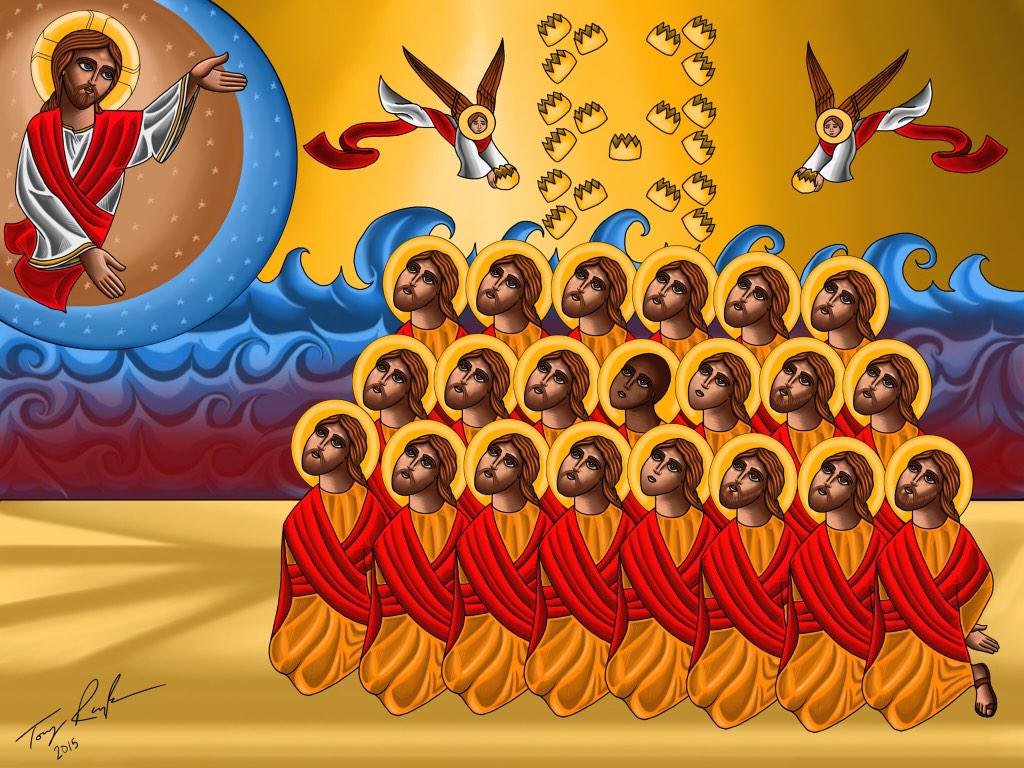In 1951, some 1500 people gathered in the crypt of St. Odile’s Church in Paris where the Semaines des Intellectuels Catholiques met to hear lectures on hope. The speakers were notable: Gabriel Marcel, Jean Daniélou, Yves Congar, and Josef Pieper, who recounts the evening in the second volume of his autobiography, Not Yet the Twilight. The topic of Pieper’s lecture concerned the hope of martyrs, currently a lively topic, perhaps more urgent in 2017 than in 1951.
Pieper did not notice that Pierre Teilhard de Chardin was also present “at his feet” in the crypt. But a biography of Teilhard, written ten years later, reproduced a letter of his about Pieper’s lecture. Teilhard did not like it. The point of Pieper’s lecture was that “you would do better not to speak of human hope at all if there is no hope for the person who is willing to be killed for sake of truth and justice.” From the point of the one undergoing persecution, the situation is, humanly speaking, precisely “hopeless.”
When we read this passage today, unlike Pieper in Paris, we are confronted with the Muslim “martyrs.” In carrying out Allah’s mandate, they are martyrs if they are killed while killing infidels who are, by definition, guilty because they are not Muslim. So in some convoluted way, being killed while killing infidels is an act of heroic virtue. In ages of great philosophical and theological confusion, even the noblest acts can be made to seem their opposite.
The issue with Teilhard, however, revealed a different scenario. Pieper’s point was this: If no hope of a transcendent life as a result of martyrdom were possible for this particular person who is killed, the act itself would be incoherent. Pieper explains the context of his position: “It is written nowhere that human history, in its temporal aspect, will simply end with the victory of reason and justice.” That is, the martyr cannot anticipate that his act of accepting death for the sake of truth will result in improving the lot of himself or of those who follow him in this life.
A death may uphold the Socratic principle that “it is never right to do wrong,” but it does not follow that others will be converted to this view or follow it. Martyrdom is not a formula for political reform. We have no record that the people who voted to condemn Socrates ever gave it a second thought. Aristotle left Athens so that the same city would not “kill the philosopher twice.” He feared, probably rightly, that Athens learned nothing from the first killing.

In his letter, Teilhard thought that Pieper’s view was “defeatist.” He was not looking at the long run. Most modern ideologies from liberalism and Marxism to environmentalism follow this pattern. The human race is young. In the “biosphere,” at some point within time, these things will be worked out.
For them, what is wrong is not located within the hearts and wills of individual persons confronted with immediate issues in time. To justify it, the martyr supposedly can expect improvement within history as a result of his act. But even if the blood of martyrs does have salutary effects, they do not redound directly to the one killed. That is the whole point of Pieper’s approach about hope.
In Pieper’s view, Teilhard confuses “evolution and history.” Martyrs live within time. Evolution goes on relentlessly apart from human input, unless one wants to make the human mind itself an instrument of evolution. In that case, it would no longer be precisely evolution.
“Naturally, blood witness can only be spoken of meaningfully within the realm of history, while evolution knows no martyrs.” These are remarkable words. “Blood witness” within the realm of history means that some event occurred in which some individual person is killed for upholding a truth that does not change. If such a thing happened “automatically,” it might be interesting but it would not be meaningful. We could not say that it stood for truth.
The sentence “Evolution knows no martyrs” penetrates to the core of the issue. A martyr is not a species. If dinosaurs ever existed but became extinct before human beings ever appeared on the planet, we cannot call their disappearance a “martyrdom.” The “survival of the fittest,” Chesterton once remarked, means the “survival of those who have survived.”
The martyr does not survive. That is the point. In this world, he is dead, for good. His witness may or may not live on among us. He dies unwilling to cross the line that separates good and evil. Those who do cross this line still die, just at some other time. This is why, without final judgment, the world is incomplete. The alternative to martyrdom is living on and on in this world without dying, without hope. To repeat, “Evolution has no martyrs.”














